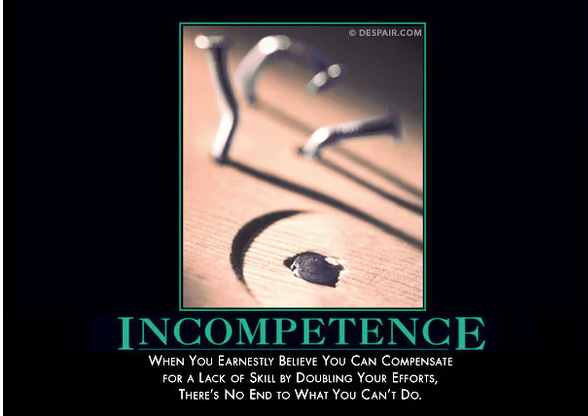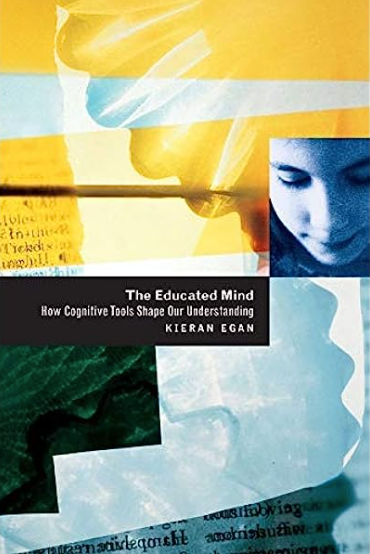It’s far worse for the kids, because most of them are not even working at what they trained for. Or if they are, they are working at a level as though they were never trained.
But there is a bigger problem: most boys start being treated as second class citizens around middle school. If you’re older than me, you might think I lost my mind. Heck, if you’re younger than me, and never looked closely at what your kids’ school is doing, or you have no kids, you might think I’m nuts.
Well, I might be nuts but not on this. Starting at about middle school, boys are treated as defective girls. Because women are the majority and treated like a protected minority, every school is afraid of not “treating them fairly” which means giving them primacy. Now just your boy’s behavior as a boy will be punished, but assignments are geared for how girls/women think (which means they also annoy the living daylights of atypical females like myself), they are oriented to group work (which by and large punishes males, though again, atypical females ain’t too happy either), and they’re geared to at least external compliance (which again is a female trait.) Most of the teachers are not just women, but they’re women indoctrinated in a system that tells them that male work is superior and that women are unfairly discriminated against for “being kept out of it.”
If at this point you’re puzzled over my referring to male and female characteristics, and to male work, let’s take the gloves off and speak like adults, instead of the mush most of us have been fed our entire lives.
While we’re rational, thinking creatures, and creatures with our own will power, and therefore can work on a lot of our characteristics and change them: there are differences between men and women. Innate, inborn differences, starting in the uterus with the “hormone baths” that guide development of different sexes. Period.
No real scientist would ever deny that, unless of course he/she feared for his/her job.
… and because we live in retarded times, let me explain that though our bodies and brains are completely different and run on two models, yes, how much that difference manifests is a spectrum. First, because development has glitches. I.e. some people don’t get the right hormones at the right time, and might outright have a brain that leans more the way opposite their body. This is very rare. It is also, btw, not covalent with gender dysphoria. It’s mostly 100% living frustrated by the rest of humanity and assumptions made. But there are other issues. Other types of characteristics might emphasize/mitigate/mimic the way of thinking of the opposite sex. Autistic females tend to think more like males (go figure) and ADHD women might appear to (though it’s not necessarily true.)
Also, like every gendered characteristic, there is a spectrum. Gender doesn’t exist on a spectrum (mostly because it’s a grammatical construct and those are very binary/trienary) but GENDER EXPRESSING CHARACTERISTICS do. Every adult knows tall, hairy men with deep voices, and slight, almost hairless males who are tenors. And every combination thereof. This without regard to maleness/fertility/orientation. And every adult knows vavaboom females that look like they should be painted on the nose of WWII planes, and tall, broad shouldered, practically no hips or breasts females and every combination in between. And these women might or might not be straight/fertile without regard to those combinations.
And yes, all of us know strong women and weak males, though testosterone unreasonably favors males from early development.
[…]
Look, to level set: if you have a son, even a relatively high performing one, chances are he’s working under a level of throttling-down. And most boys are checked out. They no longer care. They’ve been told they’re oppressors and evil by reason of being born male from the moment they were conscious of being male. They no longer care. They no longer want to do anything. Burned out before they even start their lives.
And under it, because they’re males, with testosterone, there’s a level of anger that women will never understand, unless they live surrounded by males and really, really work at understanding. This means that this treatment of boys is creating that much ballyhooed “toxic masculinity” which idiots confuse with “being male”.
Yes, some boys are finding their way into professions the feminists have no interest in, and bless Mike Rowe, whatever his issues, for showing the way to a bunch of males.
But that’s not going to solve our problems as a society in general. Because, sure, we need machinists and HVAC technicians. But we also need engineers who are more fascinated with the “thing” that is the main part of their job, than with office politics. We need researchers who will work hard at figuring the problem, and not spend most of their time figuring out on whom to step to get higher. We need doctors who are gruff and not particularly good at “customer service” but view disease as an enemy to be conquered. (I could go for days about medicine. I’m not going to. But part of our favoring women in medical school is that we are importing most of the people involved in actual day to day doctoring — a dirty, unpalatable position educated women tend to disdain — from countries without the same standards of training. This is one of the idiotic consequences of denying biology in favor of bizarre Marxist social engineering. And not that, yes, I have several female doctors among the regulars. Yes, females can be good and passionate doctors. And several of them are. But those who read here are old enough they were admitted on an equal footing with males. No one was trying to make it 80% female, which is what I’m complaining about. That level of discrimination distorts everything down the line.)
We are INTENTIONALLY blocking males from pursuing their interests and talents, while pushing women to pursue what are traditionally male interests and talents.
This extends from professions to modes of behavior. Women are encouraged to join the hook up culture, with no emotional attachments and behave like BAD and IRRESPONSIBLE men of the 50s (or at least the popular image of those. None of us lived them. Wait. Some of you did. But I didn’t. And those who did as adults are, at this point, a minority.)
The only possible conclusion is that our culture has gone insane and thinks that male modes of work, and male modes of social behavior are VASTLY superior to females. And that females would normally behave like males, unless they were prevented. So, women must have been prevented for MILLENNIA. MILLENNIA. And now, we’re taking revenge for all those oppressed women, by making men behave like women and women like men. Ah. See how they like being oppressed!
Stated like this, openly, it sounds completely insane. It’s like these people are bizarrely misogynistic aliens, who never met a human. Which is largely true. They’re Marxists, for whom every human is a widget, interchangeable with every other human.














